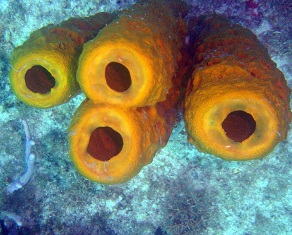Cancer cell motility may be reduced by Marine sponges
 Researchers have found that the natural compound sceptrin, which is found in marine sponges, reduces cancer cell motility (movement) and has very low toxicity.
Researchers have found that the natural compound sceptrin, which is found in marine sponges, reduces cancer cell motility (movement) and has very low toxicity.
The discovery was made by investigators at Sanford-Burnham Medical Research Institute (Sanford-Burnham, formerly Burnham Institute for Medical Research) led by Kristiina Vuori, M. D., Ph. D.
Boffins tested sceptrin in multiple tumor cell types, including cervical, breast and lung cancers. Sceptrin restricted motility in all cell lines. Further tests showed the compound works by limiting the cells' ability to contract, a critical function for cell motility. The researchers also found that sceptrin synthesized in the laboratory was just as effective at combating motility as the naturally-derived compound.
Dr. Vuori said,"Given the recently achieved synthesis of sceptrin in multi-gram quantities by the Baran laboratory, sceptrin could prove to be an attractive lead molecule for further preclinical testing and development for therapeutic purposes. It may also prove to be a useful research tool in order to elucidate the mechanisms involved in cell motility."
Growing cancer cells were cultured by the researchers with growth factor to encourage motility. These cells were treated with varying amounts of sceptrin, which was found to be more effective at increased concentrations. The team conducted apoptosis and cell proliferation studies to determine whether these mechanisms accounted for the decrease in motility of sceptrin-treated cells. (With Input from Agencies)